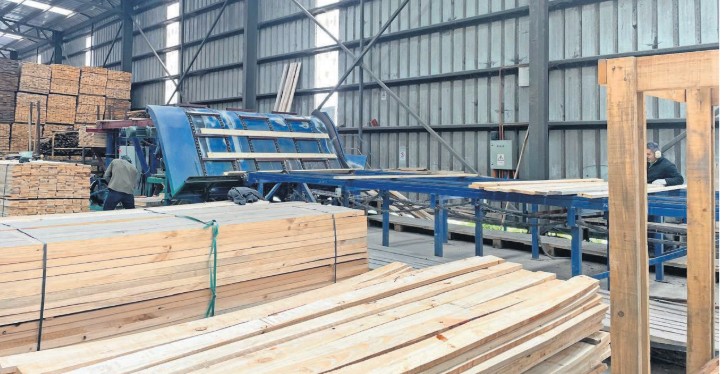- From 2020 to date, an estimated 20 of these businesses have disappeared. Industry players are calling for a support law.
Just as happened with Huachipato and the crisis in Puerto Coronel, the forestry and timber sector in the Biobío Region has raised its voice to highlight a negative scenario affecting them. However, it is the small and medium-sized enterprises (SMEs) in the industry that are now seeking solutions and assistance, currently supported by larger companies acting as spokespeople to bring entrepreneurs' concerns to the authorities' table.
The local industry's reality is reflected as follows. In the Biobío Region alone, from 2020 to date, over 20 sawmills have been forced to close, according to Pymemad estimates. In a broader analysis, Corma Biobío-Ñuble states that over the last 10 years, 50 small and medium-sized sawmills have disappeared—one-third of the national total. This is compounded by the closure of Horcones 2, which left more than 120 people unemployed in 2023, as well as the indefinite suspension of El Colorado, affecting 78 workers.
Timber industry representatives are concerned, primarily because they know sawmills of this scale can generate between 10 and 100 jobs depending on their size. In other words, the cumulative impact is significant when considering all the businesses that have succumbed, with more likely to follow this year if sector conditions do not improve.
Support
Michel Esquerré, president of Pymemad, explains that the sector's decline is also evident in exports, where SMEs accounted for 10% of forestry shipments in 2018—a figure that has since dropped to 5%. "This shows their influence has diminished, and the regional impact must be much stronger." The leader warns that the disappearance of producers includes both those dedicated to woodchip production and sawn timber, "which is why SMEs urgently need forestry support and government assistance."
"There are various factors, but the most critical issue is supply for SMEs, which is very limited and expensive. The wildfires that affected small landowners—key suppliers for smaller businesses—played a big role. Large companies continue planting to secure supply, but if SMEs aren’t given support, they have no sourcing options," says Esquerré, who explains this problem directly impacts rural areas, "where SMEs are invaluable for providing year-round permanent jobs."
Along the same lines, the president of Corma Biobío-Ñuble, Alejandro Casagrande, notes that over the past decade, this crisis has led to the loss of 3,200 jobs annually, with Biobío being the hardest-hit region. He adds: "We’ve seen a 14% reduction in planted areas, dropping from roughly 2.3 million hectares to under 2 million. Additionally, 700,000 hectares of plantations have burned due to wildfires—about one-third of the national forestry heritage—and not all have been replanted."
Casagrande highlights other factors: Over 100,000 hectares are either being illegally occupied or inaccessible for operations, particularly in Arauco and Malleco provinces, while contractor companies have suffered more than 400 arson attacks, many leading to business closures and large-scale theft.
"It’s clear we face major challenges in ensuring a steady supply of raw materials to our plants of all sizes—something that isn’t happening and explains the closure of industrial facilities. Over the last 10 years, around 200 sawmills have shut down, mostly small but also medium and large ones, plus a pulp mill in Maule," he states.
Finally, the industry representative asserts that Chile urgently needs a forestry support law to aid the recovery of fire-devastated forests and promote planting in areas affected by soil erosion, especially for SMEs.
Source: Subscription edition ofDiario El Sur







Comentarios (0)
No hay comentarios aún. ¡Sé el primero en comentar!
Deja un comentario